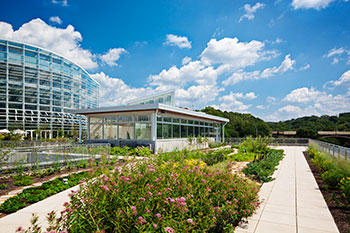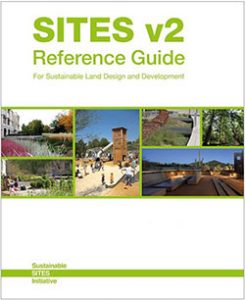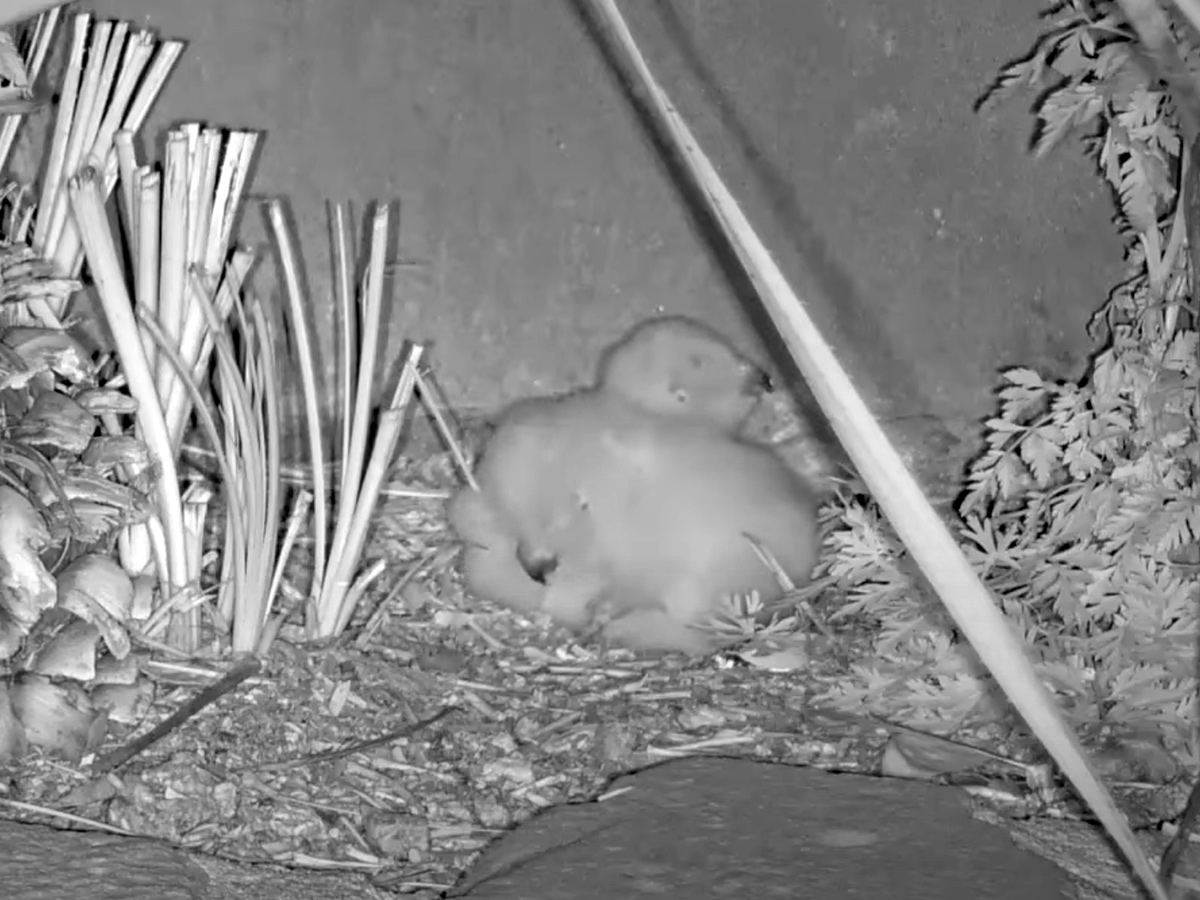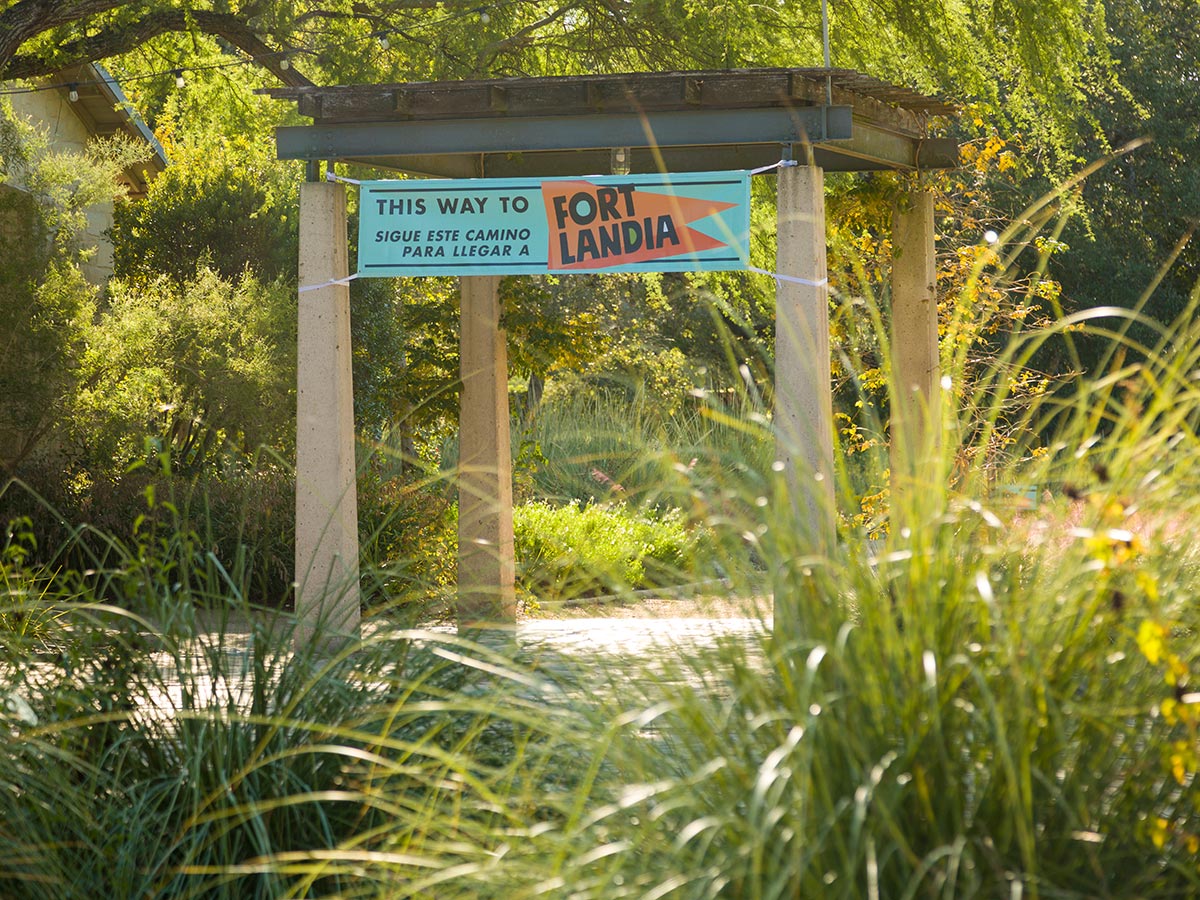PRESSROOM
Sustainable Landscape Rating System Available for Worldwide Use
AUSTIN, Texas — The most comprehensive system for developing sustainable landscapes, the SITES v2 Rating System, has been released by the Sustainable Sites Initiative™ (SITES™) program for use by landscape architects, designers, engineers, architects, developers, policymakers and others who work in land design and development.
The SITES v2 Rating System and an accompanying Reference Guide provide a set of best practices, performance benchmarks and tools for creating and evaluating sustainable landscapes. Successful projects are recognized with certification.
Developed over seven years with input from hundreds of organizations and thousands of professionals, SITES v2 incorporates lessons learned from 100-plus pilot projects that field-tested the 2009 rating system.

The Phipps’ Center for Sustainable Landscapes is a four-star SITES certified pilot project. Photo: Denmarsh Photography, Inc.
“Built landscapes provide much more than aesthetic and recreational experiences,” said Danielle Pieranunzi, SITES program director at the Lady Bird Johnson Wildflower Center at The University of Texas at Austin. “When we design and manage our environment, we have the responsibility to do so in ways that conserve water, clean air and water, and reduce vulnerability to damage from flooding, storm surge and drought. The performance-based benchmarks of SITES v2 will guide and reward exemplary projects that accomplish these important goals.”
SITES v2 resulted from a collaboration among the Lady Bird Johnson Wildflower Center, the United States Botanic Garden and the American Society of Landscape Architects.
The rating system uses progressive industry standards for landscape design and incorporates additional recommendations from technical experts in the fields of soil science, botany and horticulture, hydrology, materials, and human health and well-being.
“SITES v2 is the most integrated, rigorous, in-depth rating system available for sustainable landscapes, and emerges from the input of a large number of experts across many disciplines,” said José Almiñana, FASLA, LEED AP, principal at Andropogon Associates. “SITES v2 has the potential to be truly transformative for the profession of landscape architecture; SITES v2 will be an invaluable resource for those who want to amplify the performative aspects of the landscape and sustain them overtime. After this, we can no longer look at landscapes the same way.”
Landscapes are considered sustainable if they reduce water demand, filter and reduce stormwater runoff, provide wildlife habitat, reduce energy consumption, improve air quality, improve human health, and increase outdoor recreation opportunities.
Some of the credits for sustainable landscape performance have been adapted from applicable credits in the LEED Rating System for high-performance green buildings of the U.S. Green Building Council.

SITES v2 Reference Guide
Of the more than 100 pilot projects that began testing the interim rating system in 2010, 30 have achieved certification thus far. These include landscape projects at corporate headquarters, national and city parks, academic campuses and private homes.
Practitioners interested in pursuing certification can begin to align their landscape projects with the SITES v2 Rating System.
Negotiations are underway with the Green Building Certification Institute to provide project certification to the requirements of the SITES v2 Rating System and a related professional credentialing program.
The SITES v2 Rating System and related scorecard can be downloaded for free from the SITES program website. The SITES v2 Reference Guide (which incorporates the rating system) is also available for purchase there in digital and print formats.
For more information about the SITES program, visit www.sustainablesites.org. For images and interviews about SITES, contact [email protected].





